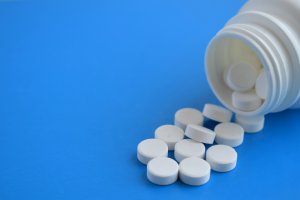Drug Overdoses & the Pandemic
We are approaching our third year into this pandemic. That sentence alone stirs up some sort of emotion with most, if not all of us, at this point. Whether an individual struggles with a substance use disorder (SUD), an alcohol use disorder (AUD), or nothing at all, the marathon that is the reality of COVID has left many of us exhausted and emotionally dehydrated. We are running on empty and looking to be replenished. But with those battling an addiction already or those with a genetic predisposition to addiction, may find themselves struggling more so in the midst of the airborne threat. The pandemic has contributed to an increase in drug overdoses.
At American Addiction Centers (AAC), the nationwide leader in addiction treatment, we offer medical detox, inpatient and outpatient care, as well as aftercare planning. No one should feel alone, during this pandemic or long after it subsides. If you’re struggling with alcohol or substance misuse and co-occurring disorders such as depression, please reach out for help.
Opioids and Drug Overdoses
Not only has there been increases in drug overdoses, but in substance use in general since March of 2020. And individuals with SUDs are more likely to experience unfavorable COVID outcomes. According to the American Medical Association (AMA), all states have reported a rise in overdose deaths during the pandemic. The evidence continues to point to the culprits known as methamphetamine, illicit fentanyl, cocaine, and fentanyl analogs or a mixture of the substances. Even heroin and prescription opioids tend to be laced with illicit fentanyl, often resulting in overdoses.
culprits known as methamphetamine, illicit fentanyl, cocaine, and fentanyl analogs or a mixture of the substances. Even heroin and prescription opioids tend to be laced with illicit fentanyl, often resulting in overdoses.
Overdose and opioid statistics:
- There have been approximately 100,000 drug overdose deaths between March 2020-March 2021, a 30% increase from the year prior.
- 37 of 38 jurisdictions in the United States with synthetic opioid data reported a rise in synthetic opioid-related overdose deaths. Nearly 20 of these jurisdictions reported a rise of more than half.
- 10 states on the west coast reported more than a 98% rise in synthetic opioid-related deaths.
- Buprenorphine treats opioid use disorder (OUD), but less than 20% of individuals with an OUD receive medications such as these.
- Buprenorphine reduces overdose risk by half while increasing individual’s chances for long-term recovery by 50%.
- 20% of U.S. pharmacies don’t provide buprenorphine.
What can we conclude about these statistics? Perhaps, anxiety, depression, fear of the unknown, and “COVID fatigue” is wearing on many individuals. For some people, they may indulge in substance misuse as their way of coping with the emotional and mental anguish that this pandemic has brought on. Although some may see a light at the end of this very dark pandemic tunnel, we are still in the midst of COVID and don’t know how much longer this will be.
Some circumstances are simply beyond our control. But what we can act on is seeking help when we need it. Whether that’s through a supportive friend or family member or through therapy or counseling. And when facing an AUD or an SUD, seeking help from a licensed physician can make all of the difference between life and death.
If you or a loved one have been battling an SUD or an AUD during the course of this pandemic, you’re not alone. We’re here to help. There are resources available. Please reach out to get the help that you need today!
